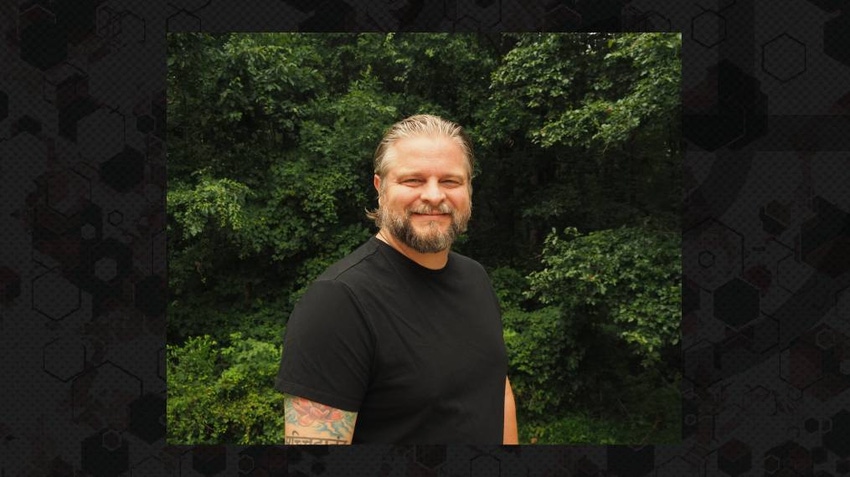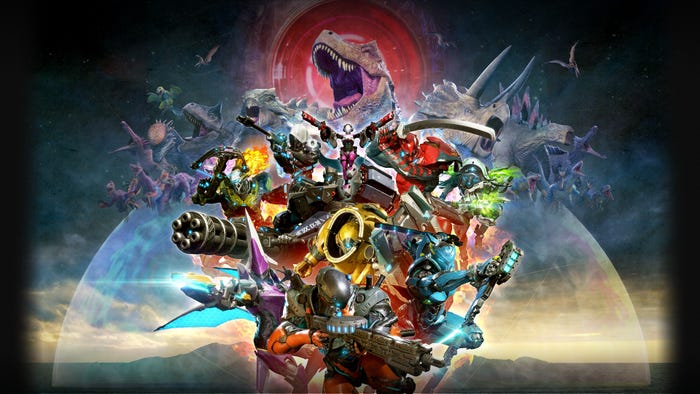Remote teams need "a foundation of trust" to be successful, says Jeff Gardiner
Software and moxie can get you really far with an all-remote team, but Something Wicked Games founder Jeff Gardiner says you need a foundation of trust to make great games.

Former Bethesda producer Jeff Gardiner and his company co-founders at Something Wicked Games are continuing to chug away at their first game. Since exiting stealth mode at Gamescom 2022, Gardiner's put on a dedicated effort to publicly discuss what he's learned about building and running teams of developers.
A few weeks ago at GDC, we found Gardiner wandering the halls of Moscone Center and sat down for a chat about game leadership. In particular, we wanted to know what he's learned assembling an all-remote team, especially after years of working in-person at Bethesda Game Studios.
Gardiner's number-one takeaway for team leaders wasn't about remote-friendly tools or proper tax logs—it was about trust. In an era where studios big and small are learning more about how to lead better teams, trust seems like a more important topic than ever.
Something Wicked Games wants to work with developers who trust each other
Gardiner is leading the all-remote team at Something Wicked Games from his home office in the suburbs of Maryland—and as we chatted, he discussed the team's desire to hire developers from as far away as Portugal (he made a particular pitch for Portugal-based readers to get in touch, since their next game takes inspiration from the country's geography and architecture).
To have a healthy working relationship with developers in an all-remote environment, he said that he's learned teams need two things: trust, and a sense of purpose.
"In a remote studio, you need to establish trust quickly," he explained "because you're not seeing people sometimes for days at a time." He talked about how it's important for his employees to know that "he has their back."

This concept art shows off Something Wicked Games' interest in Portuguese influences.
To work independently however, teams need to be given "a clear sense of purpose." "It's so important for me as a creative individual to know that 'what I'm working on matters, my contributions mean something, and I'm not just a cog in a machine,'" he said. It's a theme that can highlight one challenge of remote work.
Operating independently and having a self-driven schedule can be empowering, but if that schedule gets ground down into busywork, it can be especially isolating.
Gardiner said that Something Wicked has gone so far as to make those two principles part of its core values, the third of them being that it wants its employees to have "a sense of adventure."
That gave us a good chance to ask Gardiner—why do studios even need company values? They're a very Business 101 concept that sound robust when you're a student but are apparently quite disposable when you're a high-powered executive at a company like Blizzard Entertainment.
Gardiner deferred on commenting about our Blizzard example, but he did say there was still value in going back to those 101 basics when setting up a new studio.
He wanted to add that studios need to build proper processes to handle "constructive conflict."
Solving "constructive conflict" is a must for new studios
"Constructive conflict" is a phrase that Gardiner used in association with the more well-known known practice of "constructive criticism." Developers everywhere can learn how to give better critiques, but the next step is to learn how to solve disagreements, especially when there isn't a factually "correct" solution.
"A lot of times there's this silent resentment and toxicity that comes from people who can't speak up," he said. Developers who feel creatively unfulfilled by a project, don't believe in a game's direction, or are treated poorly are particularly susceptible to this phenomenon.
Making sure people feel comfortable speaking up, and who can in turn, speak up without making their criticism personal or petty, are important studio-founding tasks. It's especially critical in order to help teams solve subjective problems. "There [are] oftentimes two very good solutions to a problem, and you need to have constructive conflict to [pick a solution]," he added.
Gardiner said in his experience, the game industry has a lot of excellent creative leaders who don't understand "the basics of running a business, or stress of making a game." He urged other aspiring studio founders to understand that "these things are hard to do."
Sometimes that lack of understanding can manifest in situations where company founders or key leaders don't have a clear vision for a game or specific features within that game. Gardiner explained that "unclear vision" and "second guessing decisions before they're made" can be some of the greatest contributing factors to conflict in a game development environment.
In particular he lamented the practice of "the E3 effect," when teams are making steady progress on a game, but are thrown off when company leaders return from an event like E3 eager to implement a mechanic they saw in another high-profile game. "These games are such delicate systems that sometimes you plug any one thread [and it] unravels the whole thing," he said. "You have to see your vision through to the end."

Concept art from Something Wicked Games.
(In light of E3's recent demise, it may be time to start calling this "The Dark Souls effect," where your creative director spends a weekend with the latest FromSoftware game and comes back with entirely new ideas.)
Sticking to that vision (and a healthy amount of proactive scheduling) can "protect your people from having to kill themselves at the end of a game."
Gardiner's continued public advocacy for better working conditions at game studios remains an oddly unique phenomenon in the post-pandemic startup boom that we've been covering in the last couple of years. Other studios have shone a spotlight on the games their founders previously worked on, others are surfacing with big announcements showing off the games themselves.
The Something Wicked Games team, it seems, will continue to try and communicate about the importance of better-run studios as it works on its fantasy adventure title.
Read more about:
FeaturesAbout the Author(s)
You May Also Like













